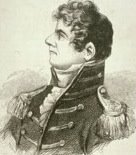The Protestant Inheritance
 The Protestant inheritance has long been divisive. From the outset, the Reformation contained within it radical and conservative readings. While Martin Luther's split from Rome in 1517 offered a template of rebellion, his stress on scriptural authority (sola scriptura) gave the Bible's conservative edicts new force.
The Protestant inheritance has long been divisive. From the outset, the Reformation contained within it radical and conservative readings. While Martin Luther's split from Rome in 1517 offered a template of rebellion, his stress on scriptural authority (sola scriptura) gave the Bible's conservative edicts new force.Particularly attractive to authoritarian Protestant princes was Romans 13:1 - "Let every person be subject to the governing authorities. For there is no authority except from God, and those that exist have been instituted by God." Here was godly sanction for state autarchy - a Protestant tradition of conservatism that would eventually find a British voice in "Church and King" Toryism.
But a reading of the Book of Acts could lead believers in a different direction: "We must obey God rather than man." For those Anabaptists in 1530s Münster and Calvinists in 1550s Edinburgh who decreed that their governments were in opposition to the rule of God, the response was revolution. Indeed, much of modern resistance theory - the duty to overthrow despotic authority that inspired revolutionaries in 1640s England and 1770s America - stems directly from the Protestant tradition.
Along with this came a focus on equality. In place of the inequitable hierarchy of the Catholic Church, Luther posited a "priesthood of all believers". But, his poorer followers were not slow to ask, why not social justice together with spiritual equality? In the beautiful words of William Tyndale, the genius translator behind the King James Bible, "As good is the prayer of a cobbler as of a cardinal, and of a butcher as of a bishop; and the blessing of a baker that knoweth the truth is as good as the blessing of our most holy father the pope."
This was the socialist imperative of Protestantism, which would inspire generations of radicals, from the peasant leader Thomas Müntzer in 1520s Germany to the Methodist revival of 18th-century England to the civil rights mission of Martin Luther King, Jr.
Read the rest at The New Statesman.
Read the rest at The New Statesman.


0 Comments:
Post a Comment
<< Home